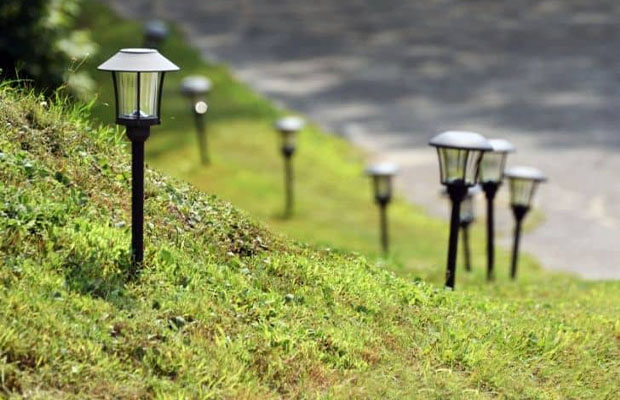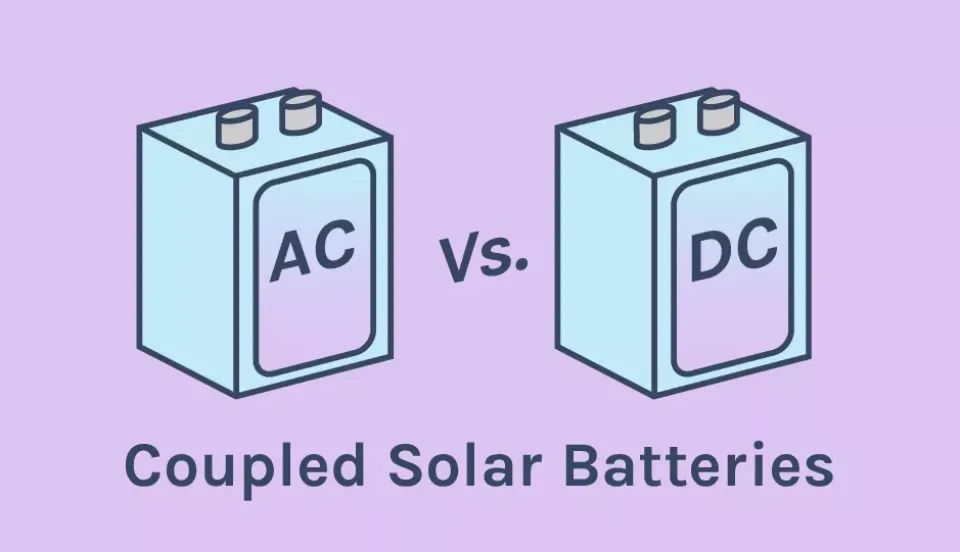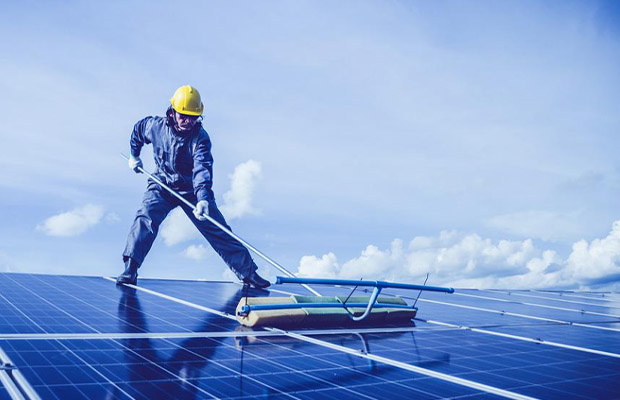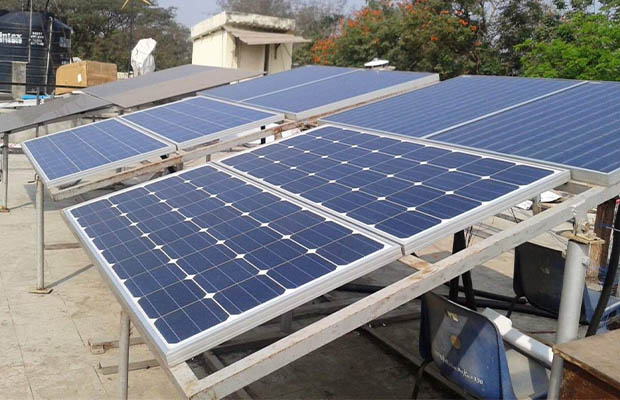A common question: how long do solar lights last? Generally speaking, the batteries in outdoor solar lights can be expected to last about 3-5 years before they will need to be replaced. The lifespan of an LED is at least ten years. The good news is that you can benefit from their illumination for longer years if you follow the below advice on lighting maintenance.
Traditional lighting sources can be replaced with solar lighting, which is more affordable and sustainable. Long lifespan, or the ability to produce bright, dependable light for many years with little to no maintenance, is one of the main advantages of solar lighting. This article will examine the lifespan of solar lights as well as the variables that may shorten or lengthen it.
Table of Contents
How Long is the Lifespan of Solar Lights?
The lifespan of solar lights varies accordingly. When it comes to LEDs, they can last for at least a decade. You will be alerted when the solar lights need to be replaced when they stop shining. However, when it comes to the battery, it may last from three to four years. A new battery will then need to be purchased.
Be aware that a variety of factors can affect how long solar lights last. Be it their placement or maintaining cleanliness, all these contribute to the lifespan of outdoor solar lights. You must keep in mind that it can withstand bad weather because it is placed outside. Your solar lights may last longer if they are properly maintained.
Also Read: How to Make Solar Lights Brighter?
Do Solar Lights Last Forever?
No matter how beautiful they are, solar lights don’t last forever, as the saying goes. So how long do solar lights last? When it comes to batteries, expect a run of up to five years. With this shelf life, years without hassles of replacement are guaranteed. However, batteries are inexpensive to replace when the time comes, and installing new ones is not too difficult.
What’s more? LEDs can serve you up to 10 years. Think about not having to worry about making purchases for ten years. Solar light has an advantage over other power sources thanks to these two combinations in terms of longevity.
The benefit of solar lighting is that your lights can stay on all night. If you make sure the lights receive enough sunlight the following day, you will be able to illuminate your outdoor space for this length of time. If the panels are exposed to the sun for eight hours, the energy will typically be sufficient.
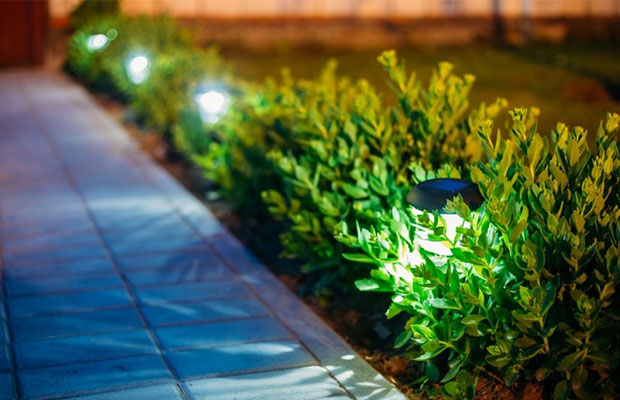
However, keep in mind that the best outcomes can only be obtained with good care. These years of service are useless if you are careless with your lights. You might then be wondering, “How can I extend the lifespan of my solar lights?” There are a few tricks to maximizing the performance of your solar lights.
Key Points on Solar Light Lifetime
- Solar lights are made to last and be resistant to the elements, but like any product, they will eventually need to be replaced.
- The quality of the product, how much sunlight it receives, and how frequently it is used are all variables that affect how long a solar light will last.
- Solar lights typically last for a number of years before needing to be replaced. A manufacturer’s warranty is often offered with many solar lighting products, and it usually lasts for a specific amount of time and covers flaws and other problems.
- Solar lights will last longer in areas with more sunlight than in areas with less sunlight.
- Solar lights will typically last less time if they are used more frequently than if they are used less frequently. This is due to the fact that frequent use will cause the batteries and other solar light components to deteriorate over time.
The lights won’t be able to keep their charge to illuminate the area at night, which is when you know it’s time to change the parts.
The lifespan of your outdoor solar lights can also be influenced by a few movable factors.
One factor that can affect their longevity is where they are placed in relation to other artificial lighting. As too close of a proximity can confuse the sensors that cause them to turn on in low lighting, make sure that your outdoor solar lights are situated in direct sunlight and away from house or street lighting.
A factor in the maintenance of solar lights, in addition to their location, can be the cleanliness of the solar panels. To ensure that the panels receive enough sunlight, be sure to wipe off the panels every other week, especially if your lights are situated close to a garden or other typically dirty area.
While most lighting systems are built to withstand a variety of climates and weather conditions, they work best when they can receive a full day of direct sunlight and are not in danger of being covered in snow or blown over by strong winds. Consider storing your solar lights during certain seasons if you are worried about how the weather will affect them.
Read More: Why Is There An on/off Switch on Solar Lights?
How to Improve Solar Lights Lifespan?
- Keep It Squeaky Clean: Sunlight can be reflected off of dirt on solar panels. This will also cause the battery to discharge more quickly. Additionally, it may result in less bright lighting. You will therefore need to routinely clean the solar panels. When cleaning it, use damp clothing to avoid creating a shading effect due to dirt and debris. Additionally, you could position the lights along the outside wall of the house.
- Install In An Open Place: Placing a solar panel in an area where it will receive the most sun rays is one way to extend its useful life. There won’t be brightness if the sun doesn’t shine as much. Install your lights in a spacious area and move them. You can trim the bushes and plants to make sure nothing is in the way of the lights.
- Correct Settings: Verify that the settings are accurate. The solar lights may become damaged if the settings are incorrect. The battery may discharge due to excessive consumption. Incorrect settings could cause the garden to be illuminated brightly and use more energy. Frequently, loose wiring needs to be closely inspected.
- Protect the Panels: Inclement weather is too harsh for solar panels to handle. In addition to being harmful, cold weather can also produce poor light. You will need to bring the solar lights inside if it is freezing outside. You’ll need to remove the batteries in order to safely store them even during the winter. To keep them dry and clean, wrap the panels in paper.
- Turn Off To Preserve: It’s crucial to protect batteries. The solar panels won’t charge effectively on days when it’s raining. Poor battery recharge may result from this. As a result, on days when it rains, you will need to turn out the lights.
- Pick The Right Bulbs: High-wattage bulbs will cause your batteries to discharge quickly. Choose energy-saving lightbulbs if you want to. The batteries will last longer as a result of this. When purchasing the bulb, you must decide whether you need it for indoor or outdoor use.
- The Darkness Factor: Location is yet another crucial aspect to take into account. A sensor built into solar lights allows them to determine whether a space needs lighting. The sensor won’t recognize when it is dark, though, if you place the lights close to an artificial light source. Installing solar lights requires that they be placed far from other lights. The sensors may also be harmed if there is no signal to turn on the light.
- Throw Out Drained Batteries: If you notice that the solar light is quickly losing charge, there is a battery problem. As a result, the light may become dim or stop functioning altogether. Get a new battery to replace the depleted batteries for this reason. You must, however, carefully consider the current and voltage requirements before making your purchase.
Solar Light Lifespan Troubleshooting Tips
Throughout the lifespan of your lights, it’s possible that you’ll run into some issues with how they function.
The battery dying, dim lighting caused by inadequate sunlight absorption, or general light issues are common issues. These problems are probably related to the age of your solar light or the condition of the solar panels themselves.
Before looking for replacement lights if you are experiencing problems with your current ones, check the battery and clean the panels to see if that resolves the issue.
Final Words: How Long Do Solar Lights Last
After reading this article, hopefully you have a clear understanding of how long solar lights last.
Installing solar lights for outdoor use can be a perfect investment. Although it will cost more up front, it can end up being very effective. The ability to preserve the environment is another benefit of solar lighting.
Your solar lights may last longer if they are properly maintained. To make them run smoothly, you can always abide by the advice given above. Although they might last longer, you can expect the batteries to last for about two years before they need to be replaced. Prior to burning out, LEDs typically last 10 to 15 years.
The two best things you can do to maintain your lights are to locate them in a great area with plenty of direct sunlight and to keep your panel surfaces spotless. Any project you have planned for your house or garden can probably be completed with the help of outdoor solar lights.
Related Post: How Long Do Solar Batteries Last?
FAQs
The subject of solar lights is a topic that is frequently asked. Therefore, let’s look at some of them below.
How Long Do Solar Lights Last at Night?
Solar lights typically last for between 6 and 10 hours each night and operate for 2 to 5 years.
How Long Do Rechargeable Batteries Last in Solar Lights?
For solar garden lights using nickel-based rechargeable batteries, it can only last 2 to 3 years. Depending on how well you take care of your outdoor lights, that range will only be cut off occasionally.
Can Solar Lights Work During Winter?
The answer is yes, but they might not be as useful. The amount of sunlight is less in the winter. As a result, the lights might not charge correctly. It might be wise to turn off or store your lights indoors during the winter.

